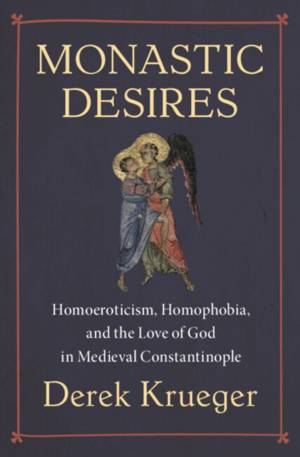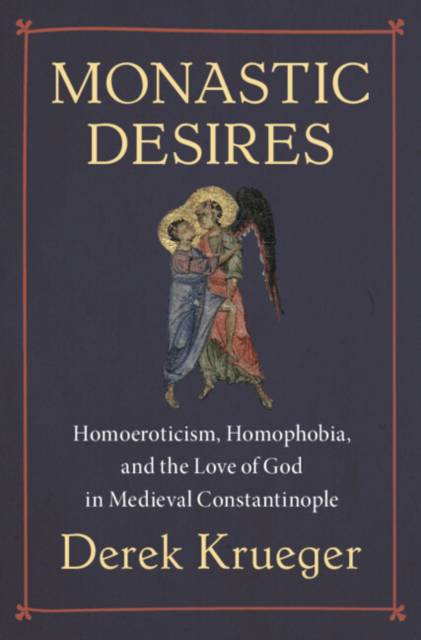
Bedankt voor het vertrouwen het afgelopen jaar! Om jou te bedanken bieden we GRATIS verzending (in België) aan op alles gedurende de hele maand januari.
- Afhalen na 1 uur in een winkel met voorraad
- In januari gratis thuislevering in België
- Ruim aanbod met 7 miljoen producten
Bedankt voor het vertrouwen het afgelopen jaar! Om jou te bedanken bieden we GRATIS verzending (in België) aan op alles gedurende de hele maand januari.
- Afhalen na 1 uur in een winkel met voorraad
- In januari gratis thuislevering in België
- Ruim aanbod met 7 miljoen producten
Zoeken
Monastic Desires
Homoeroticism, Homophobia, and the Love of God in Medieval Constantinople
Derek Krueger
Hardcover | Engels
€ 47,45
+ 94 punten
Omschrijving
The Byzantine Abbot Symeon the New Theologian (949-1022) transgressed the homophobic norms of medieval Orthodox society. His longing for God was distinctly homoerotic, and he depicted union with the divine as a queer sort of marriage. His Orthodox theology of theosis, the deification of the entire person, meant that Symeon taught the salvation of all the parts of the body. But monks also desired the eradication of lust and the punishment of those who fell prey to it. Sermons and biblical commentary defined men who had sex with men as sodomites; and saints' lives warned of the consequences of same-sex desires. Those who renounced sex redirected their desire rather than eliminating it. Symeon's queer erotics shed light on other devotions distinctive to medieval Orthodoxy, including the veneration of saints and worship with icons. Monastic Desires makes a groundbreaking contribution to the history of sexuality and the history of Christianity.
Specificaties
Betrokkenen
- Auteur(s):
- Uitgeverij:
Inhoud
- Aantal bladzijden:
- 352
- Taal:
- Engels
Eigenschappen
- Productcode (EAN):
- 9781009648332
- Verschijningsdatum:
- 31/03/2026
- Uitvoering:
- Hardcover
- Formaat:
- Genaaid

Alleen bij Standaard Boekhandel
+ 94 punten op je klantenkaart van Standaard Boekhandel
Beoordelingen
We publiceren alleen reviews die voldoen aan de voorwaarden voor reviews. Bekijk onze voorwaarden voor reviews.









